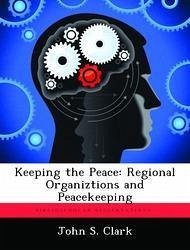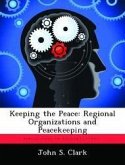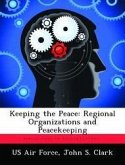During the Cold War, the United Nations developed the mission termed "peacekeeping" to help manage conflict. These peace operations helped save millions of lives, prevented conflicts from escalating, and provided an environment for the political settlement of disputes despite the superpower conflict. In the aftermath of the Cold War, the United Nations found itself freer to act than at any time in its history, and the demands placed on the organization quickly outstripped its ability to cope. This thesis examines the role of regional organizations in the conduct of peacekeeping. It asks if the international community's singular focus on the United Nations as the vehicle for peacekeeping prevented the regional organizations from contributing more to international security. Furthermore, if the regional organizations could contribute significantly to international peace, then what role should the Defense Department play in supporting these efforts?Regional organizations have conducted peacekeeping operations in the past with mixed results. This thesis examines the intervention by the Organization of American States (OAS) into the Dominican Republic in 1965, the OAS role in the Central American peace process in the late 1980s, and the intervention by the Economic Community of West African States into Liberia in 1990. These operations illustrate several salient features of regional organizations conducting peacekeeping.This study concludes that in order for peacekeepers to achieve their mandate, it is critical to possess strong political will and a minimum of operational support. Furthermore, regional organizations run the gamut in both political will and operational capability. Their performance indicates that when their national interests are at stake, the regionals demonstrate the required political will to persevere in a mission. Furthermore, they indicate an increasingly strong determination to participate in peacekeeping missions.








